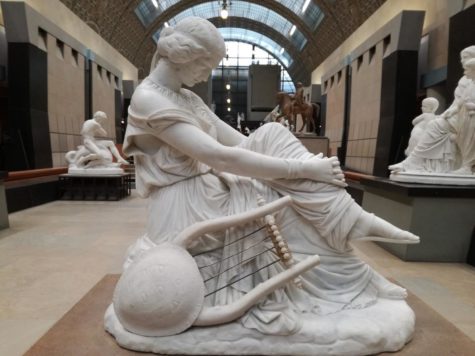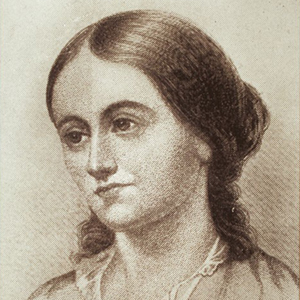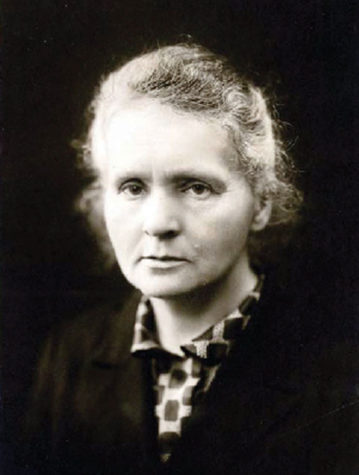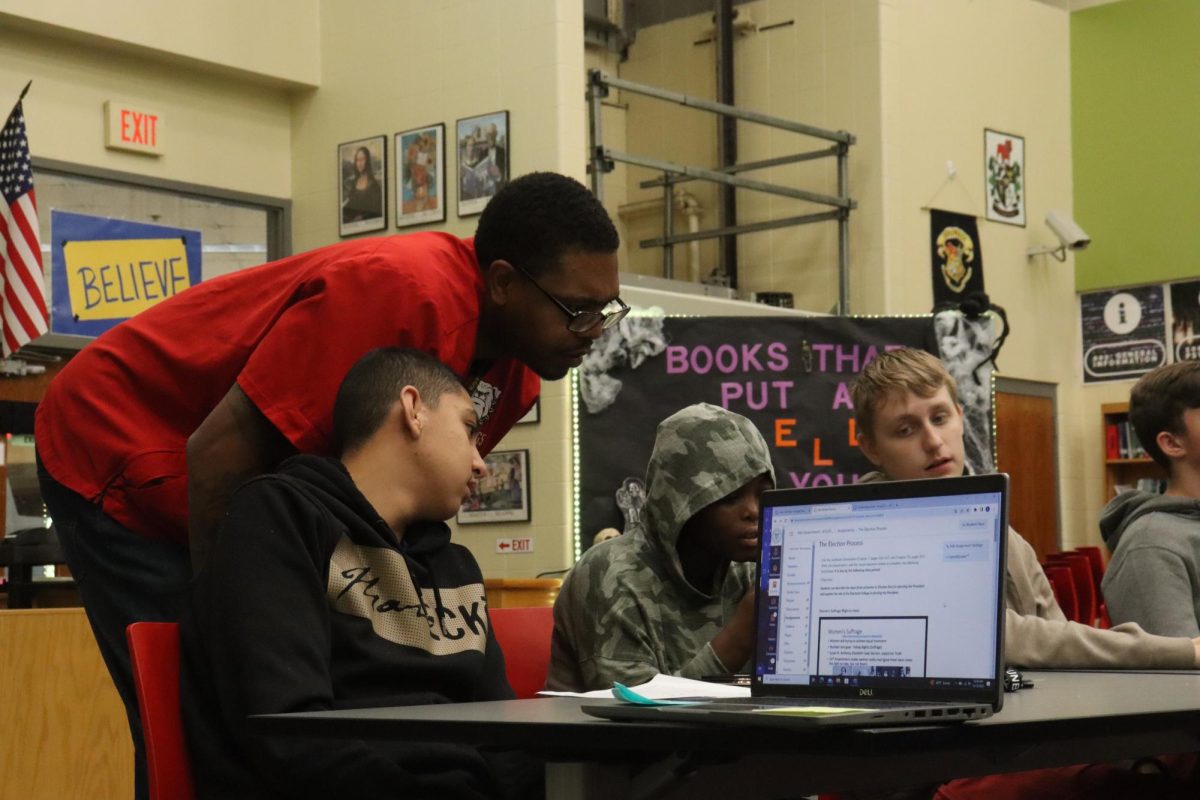Influential Women
In this blog series, staff reporter Abigail Wheatley will focus on Influential Women in History.
Throughout history, women have left lasting impacts on literature, music, and politics that often go unrecognized. These 12 women have established themselves as leaders of historic proportions. For thousands of years, women have shaped history, though many of their stories are little known.
Sappho (630-580 BCE)

This famous statue of Greek poet Sappho is a work of French sculptor James Pradier. It is currently on display in the Musee D’Orsay in Paris, France.
Born into an aristocratic family on the Greek Island of Lesbos, Sappho was one of the world’s first female writers. Most of her works were poems meant to be sung and paired with lyre. The poems expressed love for men and women and are compiled at the Library of Alexandria. She developed a new structural poetic style, lyric, as most poems of the time were written in strict meter Some of her poems were also controversial for their unapologetic content. She often wrote of the different faces of love, both angry and adoring, for men and women. She was considered to be a woman that held possession of her sexuality. It was rare because nobody knew what it meant in that time period.
Elizabeth I (1533-1603)
As Queen of England during a time of great economic and social change, Elizabeth 1 saw England as a Protestant country. Which means Western churches that are separate from the Roman Catholic Church, and they follow the principles of the Reformation; including the Baptist, Presbyterian, and Lutheran Churches. She re-established the Church of England and Catholics were persecuted. She claimed the throne at the age of 25 and held the position for 44 years. She was the last monarch of the House of Tudor.
Mary Wollstonecraft (1759-1797)
Mary Wollstonecraft was an English author that wrote the most significant book in the early feminist movement. “A Vindication of the Rights of Women” laid moral and a practical basis for extending human and political rights to women. A pioneer for the female suffrage, because she believed in women’s rights and education reform.
Sojourner Truth (1797-1883)
Sojourner Truth was an African American abolitionist and campaigned for women’s rights. In 1851, she gave a speech entitled “Ain’t I a Woman?” about women’s equality that is now known as one of the most famous abolitionist and women’s rights speeches in history. It changed the culture of women’s rights in the 1820’s.
Margaret Fuller (1810-1850)

A portrait of Margaret Fuller circa 1830.
Margaret Fuller was an American women’s rights advocate that wrote the book, “Women in the 19th century” that was highly influential in changing perceptions about men and women. It was one of the most important early feminist works. It informed people of the women’s’ perspective and how they felt about their rights.
Harriet Beecher Stowe (1811-1896)
Harriet Beecher Stowe was a lifelong anti-slavery campaigner best known for her bestseller “Uncle Tom’s Cabin”. It brought light onto the treatment of slaves and was the first book known to exploit the truth. ‘Uncle Tom’ was seen to be a term for an African American man that acts in a rebellious manner towards white authority.
Elizabeth Cady Stanton (1815-1920)
At a young age, Elizabeth Cady Stanton excelled intellectually and wanted to change societal perceptions of girls during the time period. In July of 1848, she hosted the Seneca Falls Convention and brought up the Declaration of Sentiments. After the Civil War, she became more outspoken about women suffrage. In 1869, Stanton and Susan B. Anthony formed the National Woman Suffrage Association (NWSA).
Susan B. Anthony (1820-1906)
Susan B. Anthony became active in the temperance movement but was not allowed to speak at the rallies because she was a woman. In 1852, she joined the women’s rights movement and travelled around the country campaigning for the abolition of slavery, for women to retain their earnings and women’s right to own property. The University of Rochester started allowing women to attend because of Anthony’s work.
Marie Curie (1867-1934)

Marie Curie was a famous chemist, known for her work with radon and polonium.
Marie Curie was a French and Polish scientist who received honorary degrees in law, medicine and science. She shared a Nobel Peace Prize in 1903 with her husband Pierre Curie for their discovery of radiation. She received her own in 1911 for her discovery of radon and polonium. Curie also helped develop the first x-ray machines.
Helen Keller (1880-1968)
Helen Keller became blind and deaf at 19 months. She accomplished learning to read and write while being blind and deaf. Despite her disabilities, she earned a bachelor’s degree in art. She also wrote and gave lectures as a political activist. She dedicated her life to helping deaf and blind people.
Eleanor Roosevelt (1884-1962)
At age 15, Eleanor Roosevelt was introduced to the feminist movement by the headmistress at the academy she attended and rose to become a prominent figure in the campaign. As first lady, she held press conferences, wrote a column for a daily newspaper, and was known to be an advocate for African American rights and American workers. She also made significant contributions to the field of human rights and was the head of the United Nations humans rights commission.
Dorothy Hodgkin (1910-1994)
Dorothy Hodgkin was a British chemist who received a Nobel Peace Prize for her critical discoveries of the structures of penicillin and insulin. She also devoted a portion of her life to the peace movement and promotion of nuclear disarmament.


















